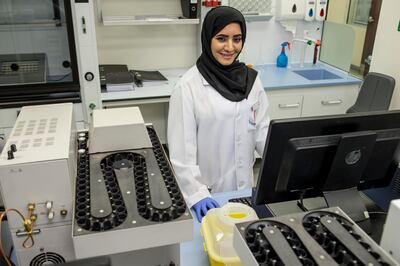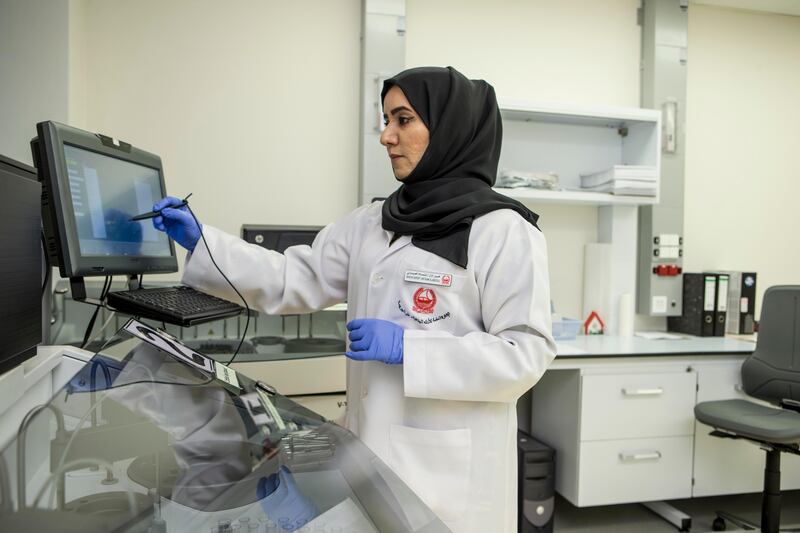It is an unglamorous and painstaking job that may be a long way from the front lines of policing.
But when it comes to cracking a case, it is often the men and women in white coats that catch the criminals.
Ebtisama Al Abdooli, senior forensic toxicologist and director of the toxicology department at Dubai Police, said she and her colleagues are driven by a strong sense of responsibility that does not yield until a crime is solved.
They test samples hundreds of times to ensure the accuracy of the result, said Mrs Al Abdooli, who has been working with Dubai Police for 15 years.
“People’s lives and family’s reputations are all depending on a decision made by our department. Therefore, the experts and I working here test samples hundreds of times to get the accurate result. There is a big challenge but everyone working in the forensic department are aware of the importance of accuracy in the field,” she said.
And when the result of a test determines whether or not a person walks free, it is no wonder they are so meticulous.
“No matter how much time or effort we spend, the results we get convict the guilty and acquit the innocent.”

Other than testing samples in a lab, part of Mrs Al Abdooli’s job is to investigate items retrieved from crime scenes.
"We deal with everything from phones to computers. We extract the information and record everything for a final report, which includes our conclusion," she said.
She can work on cases from around the country from as long as two to three days to up to a few weeks.
“Once I received a call from an expert in the forensic science department at Ras Al Khaimah at 11pm about the death of a prominent lawyer in a car accident,” she said.
That night she spent hours examining all the details and circumstances surrounding his death.
“I tested the samples several times at night and contacted the forensic physician and results came out that the person died of natural causes and not because of the accident.
"When I spoke to the forensic physician, he said the man suffered from diabetes.”
It turned out that the man had been injected with high levels of insulin, which led to his death.
The findings, she said, led to the discovery that the man’s wife and her friend had injected him with the high dose before putting him in the car, which then fell from a steep slope.
“It’s essential to check the tiniest detail to assure getting accurate results,” Mrs Al Abdooli said.
She faces many challenges in her line of work, one of which is when people approach her to discuss a sample of theirs that she is testing.
“Sometimes, a person that I am assigned to examine his/her sample approach me to discuss the sample. However, my ethics and sense of responsibility towards the community forbids me from that. We do not only deliver facts and accurate results, but we serve justice. Everyone who knows me are fully aware of my truthful attitude towards my job.”
For those seeking a career in forensics, Mrs Al Abdooli said graduates must be highly efficient, constantly update their skills in line with the latest technologies and, above all, they must be very responsible “because they will control people’s fates”.
She chose to study forensic chemistry after a school visit to Dubai Police’s Forensic Science building two decades ago.
“I was stunned when the instructor explained the fields in the laboratory and I wanted to learn more about the field and its challenges. Now, I am a passionate worker who never cares about how much time I spend in the lab," she smiled.






